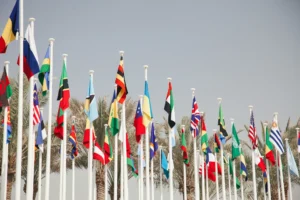For decades, the African Development Bank (AfDB) has positioned itself as a key driver of economic transformation across the continent. With ambitious goals such as industrialization, regional integration, and improving the quality of life for Africans, the AfDB’s mission is undeniably noble.However, the reality on the ground tells a different story: many African economies remain fragile, dependent, and unsustainable despite the Bank’s interventions. This raises an uncomfortable question: Has the AfDB failed to deliver on its promises?
Unrealized Promises of Sustainability
The AfDB’s flagship initiatives, such as the “High 5” priorities—industrialize, integrate, feed, light up, and improve the quality of life for Africa—are ambitious in scope. Yet, the outcomes often fall short of expectations. For instance, while billions have been invested in infrastructure, the continent continues to grapple with unreliable electricity, limited industrial output, and insufficient food security. The disconnect between the AfDB’s strategic goals and its on-ground impact highlights a troubling lack of alignment between policy formulation and execution.
Consider the energy sector. The AfDB has championed renewable energy projects, but the electrification rate in sub-Saharan Africa remains among the lowest globally. Investments often fail to address the systemic challenges, such as weak governance and corruption, that undermine progress. As a result, many projects stagnate, leaving communities in the dark—literally and figuratively.
Dependency Over Empowerment
A critical flaw in the AfDB’s approach lies in its funding models, which often perpetuate dependency rather than fostering economic independence. By heavily relying on external financing and development loans, African nations are saddled with debt that stifles long-term growth. Instead of empowering local industries and entrepreneurs, many AfDB-funded initiatives prioritize large-scale projects that are often managed by international contractors and consultants.
For example, while AfDB-backed infrastructure projects have built impressive highways and railways, the local economies they traverse often fail to reap significant benefits. This is because these projects rarely incorporate strategies to nurture local businesses or create sustainable supply chains. Consequently, the gains are short-lived, and the dependency cycle continues.
Misaligned Priorities and Implementation Challenges
Misallocation of resources and poor project execution have also plagued the AfDB’s efforts. In some cases, projects are designed to align with donor interests rather than the actual needs of African communities. This misalignment results in initiatives that look good on paper but fail to deliver meaningful change.
One striking example is the AfDB’s focus on regional integration. While cross-border trade is essential for economic growth, the Bank’s investments in regional corridors have often overlooked the foundational challenges of corruption, bureaucratic inefficiencies, and inadequate trade policies. Without addressing these systemic issues, even the most advanced infrastructure cannot unlock Africa’s full economic potential.
Neglect of Local Solutions and Context
The AfDB’s preference for imported solutions over locally driven initiatives is another major pitfall. African countries are diverse, with unique cultural, economic, and environmental contexts that require tailored approaches. However, many AfDB projects adopt a one-size-fits-all model, sidelining local expertise and innovation.
Take agriculture, for instance. While the AfDB has invested heavily in improving food security, many of its programs focus on large-scale, export-oriented farming at the expense of smallholder farmers who form the backbone of African agriculture. By failing to prioritize localized, sustainable farming practices, these initiatives risk undermining the very communities they aim to uplift.
Climate and Sustainability Failures
As the climate crisis intensifies, the AfDB’s track record on environmental sustainability comes under scrutiny. While the Bank has made strides in funding renewable energy projects, it has also supported initiatives that exacerbate environmental degradation. For example, large-scale infrastructure projects often lead to deforestation, loss of biodiversity, and displacement of communities, contradicting the principles of sustainable development.
Furthermore, the AfDB’s response to climate adaptation has been inconsistent. Many projects focus on mitigation rather than helping vulnerable communities build resilience to climate shocks. This oversight leaves millions of Africans exposed to the devastating impacts of droughts, floods, and other climate-related disasters.
Recommendations for Change
To truly foster sustainable and resilient economies, the AfDB must undergo a paradigm shift. Here are some key recommendations:
- Prioritize Local Solutions: Invest in community-driven projects that leverage local knowledge and expertise. Empower small businesses and entrepreneurs to drive economic growth from the ground up.
- Enhance Accountability: Strengthen monitoring and evaluation mechanisms to ensure that projects deliver tangible, long-term benefits. Foster transparency to combat corruption and inefficiencies.
- Address Systemic Challenges: Tackle root causes such as weak governance, policy gaps, and institutional inefficiencies that hinder economic progress.
- Focus on Sustainability: Align all projects with climate resilience and environmental sustainability goals. Avoid initiatives that compromise ecosystems or displace communities.
- Reform Funding Models: Shift from debt-heavy financing to innovative models such as blended finance, which combines public and private resources to reduce the financial burden on African nations.
Conclusion
The African Development Bank has an essential role to play in shaping Africa’s economic future. However, to fulfill its mission, the Bank must move beyond surface-level impacts and focus on deep, systemic change. By prioritizing local solutions, enhancing accountability, and embracing sustainability, the AfDB can transform its vision into reality and help build truly self-reliant and resilient economies across the continent. The time for bold reforms is now.



